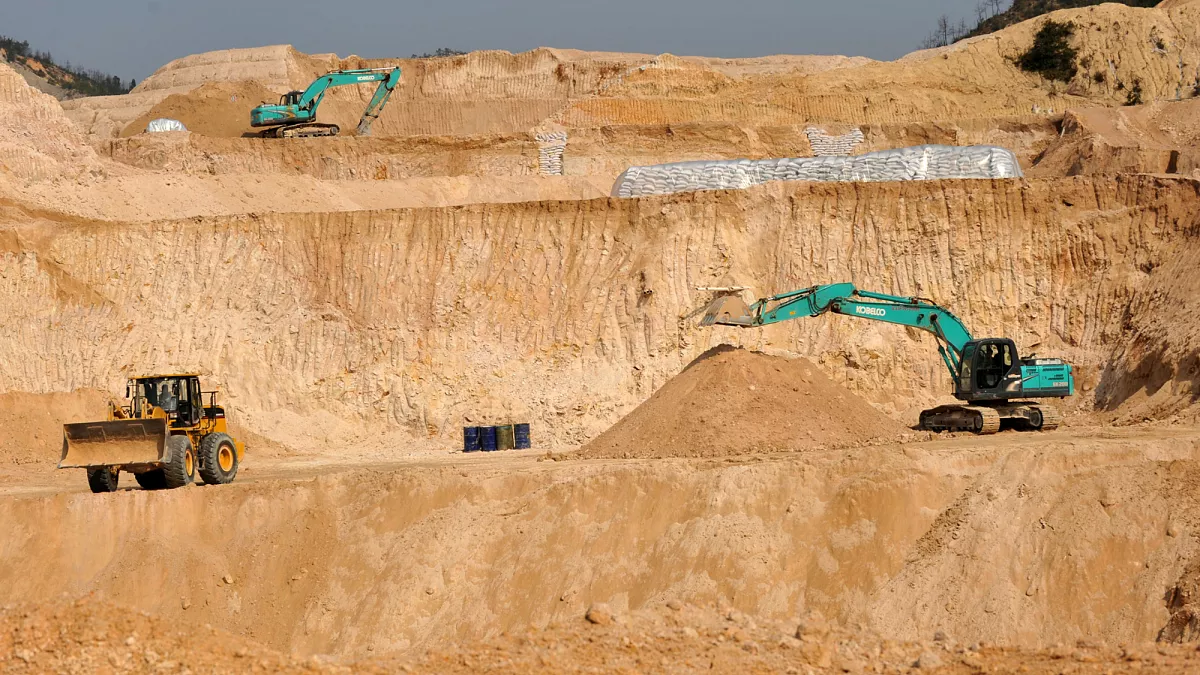Global tensions are escalating over rare earth minerals after China applied severe export controls on critical minerals required to manufacture almost everything – from cars to weapons. The move has also sparked concerns about the global supply chain.
Strategic meetings will be held between European Union officials and Chinese representatives, starting with a videoconference Monday, to be followed by a meeting in Brussels the following day.
Meanwhile, US President Donald Trump will meet his Chinese counterpart Xi Jinping on Thursday in South Korea, with financial markets attentive to whether the world’s two largest economic powers can bury the hatchet in their trade war.
At the heart of the dispute is China’s 9 October decision to restrict exports of rare earth elements. While these controls were initially a response to US tariffs, the EU has become collateral damage in the dispute and is considering ways to respond.
Why is China restricting rare earth exports?
Tensions first emerged between the US and China after Donald Trump returned to the White House and carried through an aggressive tariff policy – which the administration argues is needed to narrow a growing trade deficit – on allies and rivals alike.
On 2 April 2025 — coinciding with what Trump defined as US’ “Liberation Day” — Washington announced a 34% tariff on Chinese goods imported into the country, which, added to the existing 20%, brought total duties to 54%.
The trade war escalated after China responded with counter-tariffs, which surpassed the 100% threshold, making trade between the two practically impossible. Beyond the tariffs, to hit back, China looked to weaponise its monopoly over rare earth elements, imposing additional export restrictions on 4 April that have since remained in place.
Rare earths are a group of 17 elements used across the defence, electric vehicle, energy and electronics industries.
The world, including the EU, is heavily dependent on China, as the country controls 60% of global production and 90% of their refining, according to the International Energy Agency (IEA).
After a short truce, the dispute flared up again in September, and on 9 October 2025, China decided to extend its control over rare earth elements from seven to 12. The announcement was seen as China building leverage over the United States. The meeting between the two sides this week is crucial in dictating the path forward.
Meanwhile, the EU is caught between the two. While these restrictions aimed mostly at the US, it has also impacted the European industry. The controls take the form of licenses that are difficult to obtain, with European companies bearing the brunt, as European Commisisioner for Trade Maroš Šefčovič has repeatedly pointed out.
How is the EU responding?
In a speech over the weekend, European Commission President Ursula von der Leyen, said the Union is prepared to use all the tools at its disposal to combat what some European leaders, including French President Emmanuel Macron, have described as economic coercion from China.
The remarks from the Commission president alluded to what is known as the anti-coercion instrument – designed with China in mind but never used.
The ACI, adopted in 2023, would allow the EU hit back at a third country by imposing tariffs or even restricting access to public procurement, licenses, or intellectual property rights.
“In the short term, we are focusing on finding solutions with our Chinese counterparts,” Commission president Ursula von der Leyen said on Saturday, warning, however, “But we are ready to use all of the instruments in our toolbox to respond if needed.”
European Council President António Costa met on Monday with Chinese Premier Li Qiang on the sidelines of the ASEAN Summit in Kuala Lumpur.
“I shared my strong concern about China’s expanding export controls on critical raw materials and related goods and technologies,” Costa said after the meeting, adding: “I urged him to restore as soon as possible fluid, reliable and predictable supply chains.”
Yet, tensions persist.
A planned meeting between Šefčovič and his Chinese counterpart Wang Wentao was cancelled and replaced by high-level talks between Chinese and European experts, a Commission spokesperson has confirmed. A video conference took place on Monday, and Chinese officials are set to arrive in Brussels for a meeting on Thursday.
While Brussels insists it wants to achieve a constructive solution without escalating, the Commission is pursuing a “de-risking” strategy to reduce its dependence on Chinese minerals. In addition, Germany and France have also suggested they would support stronger trade measures if a comprehensive solution cannot be found.
On Saturday, Von der Leyen announced a new plan – RESourceEU – exploring joint purchasing and stockpiling of rare earth, as well as “strategic” projects for the production and processing of critical raw materials here in Europe.
The EU also hopes to diversify its suppliers worldwide.
“We will speed up work on critical raw materials partnerships with countries like Ukraine and Australia, Canada, Kazakhstan, Uzbekistan, Chile or Greenland,” von der Leyen said.
